Turkey’s markets are a vibrant reflection of its rich cultural heritage, blending the sights, sounds, and scents of the Middle East and the Mediterranean. Whether you’re searching for spices, handmade crafts, or antiques, Turkish markets offer a treasure trove of items and an authentic shopping experience. Here’s a guide to some of the best markets, from the famous Grand Bazaar in Istanbul to local souks across the country.
1. Grand Bazaar (Kapalıçarşı) – Istanbul
- Why Visit: The Grand Bazaar is one of the largest and oldest covered markets in the world, boasting over 4,000 shops and covering 60 streets. Dating back to the 15th century, this iconic market offers everything from jewelry, carpets, and ceramics to spices and leather goods.
- What to Buy:
- Jewelry: Gold, silver, and precious stones from renowned Turkish artisans.
- Carpets and Kilims: Handwoven Turkish rugs, some of the finest in the world.
- Ceramics: Iznik tiles and hand-painted pottery.
- Insider Tip: Bargaining is a part of the experience. Start with an offer lower than the asking price, but always remain polite and friendly.
- Opening Hours: Monday to Saturday, 9:00 AM to 7:00 PM (Closed on Sundays)
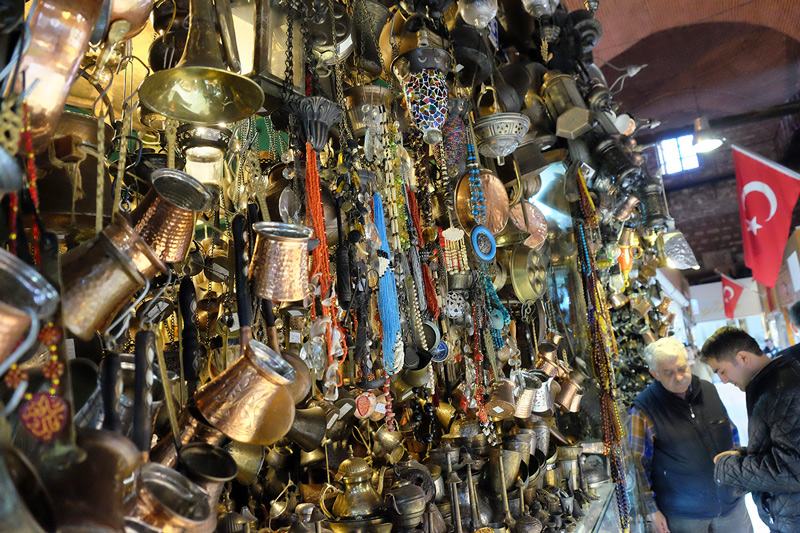
2. Spice Bazaar (Mısır Çarşısı) – Istanbul
- Why Visit: Also known as the Egyptian Bazaar, the Spice Bazaar in Istanbul is a sensory overload with vibrant displays of colorful spices, dried fruits, nuts, teas, and Turkish delights. The market was originally built in the 17th century and is a favorite for foodies and home cooks alike.
- What to Buy:
- Spices: Saffron, sumac, cumin, and other exotic spices.
- Turkish Delight (Lokum): Flavored with rose, pistachio, pomegranate, and more.
- Herbal Teas: Chamomile, apple, and mixed fruit teas.
- Insider Tip: Vendors are often willing to let you sample before purchasing, especially Turkish delights and teas. Feel free to ask for a taste!
- Opening Hours: Monday to Saturday, 9:00 AM to 7:00 PM (Open on Sundays)
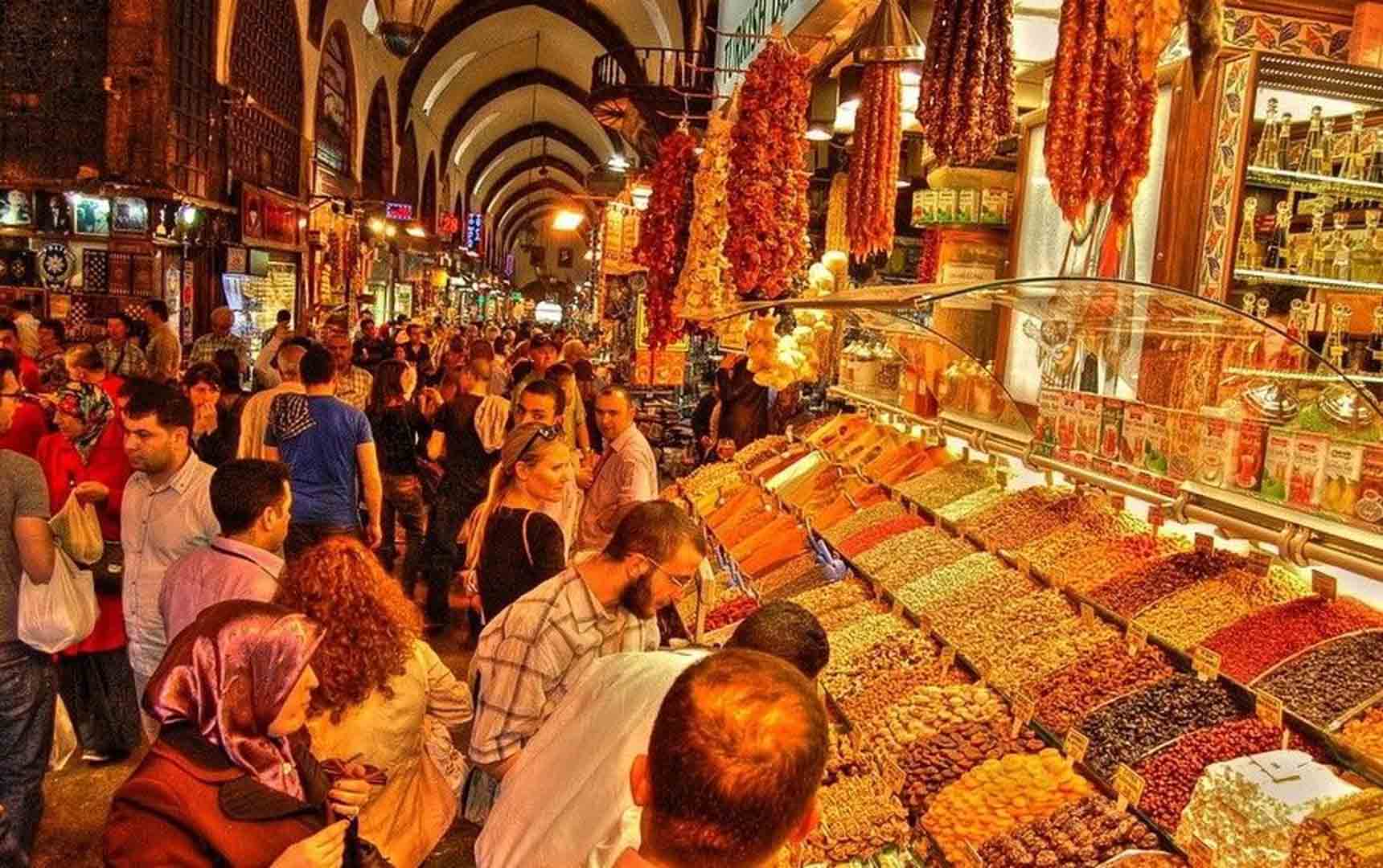
3. Arasta Bazaar – Istanbul
- Why Visit: Located just behind the Blue Mosque, the Arasta Bazaar is a quieter and more refined alternative to the Grand Bazaar. It’s a great place to find traditional crafts without the overwhelming crowds.
- What to Buy:
- Textiles: Handmade towels, silk scarves, and kilims.
- Iznik Tiles: Famous for their rich blue and white patterns, these tiles make for perfect souvenirs.
- Antiques: Browse through antique shops for Ottoman-era jewelry and trinkets.
- Insider Tip: Combine your visit with a trip to the nearby Museum of Turkish and Islamic Arts for a more immersive cultural experience.
- Opening Hours: Daily, 9:00 AM to 7:00 PM
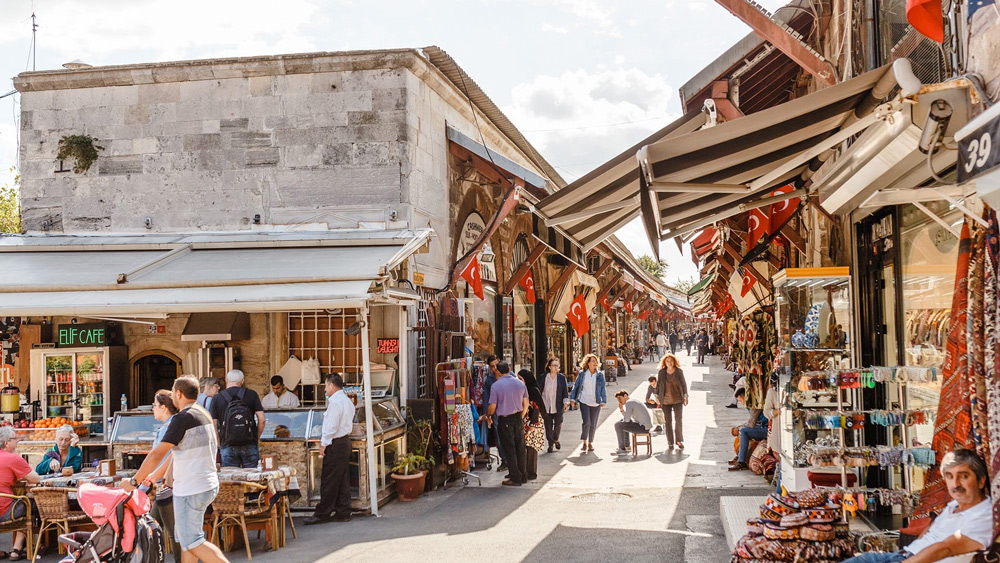
4. Çukurcuma Antique Market – Istanbul
- Why Visit: If you’re an antique lover, head to the bohemian neighborhood of Çukurcuma in Beyoğlu, Istanbul. This area is filled with antique shops offering unique items from the Ottoman Empire, including furniture, artwork, and vintage clothing.
- What to Buy:
- Ottoman Furniture: Ornate wooden chairs, tables, and chests.
- Vintage Art: Paintings, tapestries, and calligraphy from different periods of Turkish history.
- Antique Silverware: Unique pieces of cutlery, trays, and tea sets.
- Insider Tip: Don’t be afraid to explore the side streets, as some of the best finds are in hidden, less prominent shops.
- Opening Hours: Shops have flexible hours, but are generally open from 10:00 AM to 6:00 PM.
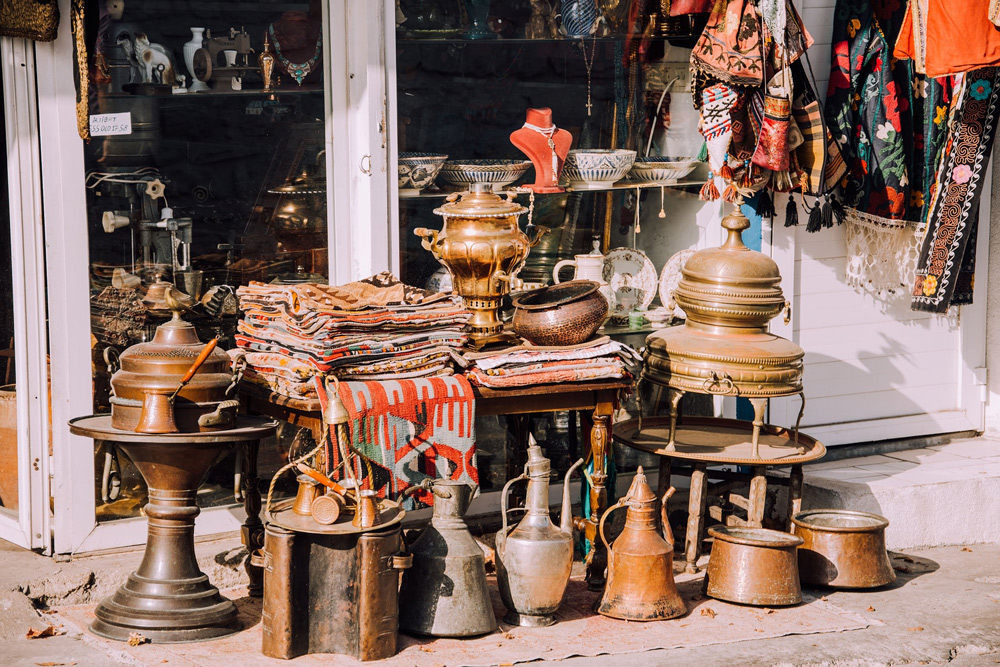
5. Kemeralti Market – Izmir
- Why Visit: Kemeralti is one of the oldest markets in Turkey, dating back to the 17th century. Located in the heart of Izmir, it’s a sprawling maze of shops, tea gardens, mosques, and caravanserais, offering a more local shopping experience compared to Istanbul’s bazaars.
- What to Buy:
- Handmade Leather Goods: Bags, belts, and shoes.
- Copperware: Hand-hammered copper pots and trays.
- Spices and Olives: The Aegean region is known for its high-quality olives and olive oil.
- Insider Tip: Take your time exploring the hidden courtyards and historic inns that are scattered throughout the market. They offer a peaceful break from the bustling streets.
- Opening Hours: Monday to Saturday, 9:00 AM to 7:00 PM (Some stalls open on Sundays)
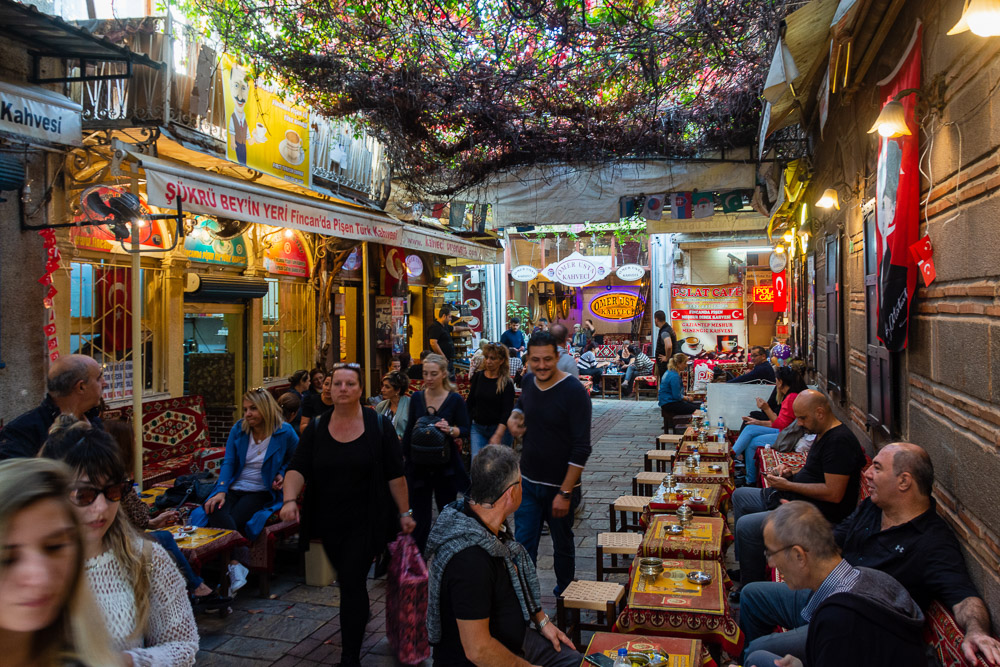
6. Kadinlar Pazari (Women’s Bazaar) – Istanbul
- Why Visit: Located in the Fatih district of Istanbul, Kadinlar Pazari is a food lover’s paradise offering regional specialties from Anatolia and beyond. This is where locals shop for traditional meats, cheeses, and spices.
- What to Buy:
- Dried Meats: Especially pastirma (cured beef) and sucuk (spicy sausage).
- Cheeses: Turkish cheeses from different regions, like Tulum and Beyaz Peynir.
- Honey and Nuts: Locally sourced honey and a wide selection of Turkish nuts, like hazelnuts and pistachios.
- Insider Tip: Sample regional specialties like pide (Turkish flatbread) from vendors, and don’t miss the opportunity to try traditional Anatolian dishes in nearby eateries.
- Opening Hours: Daily, 8:00 AM to 8:00 PM
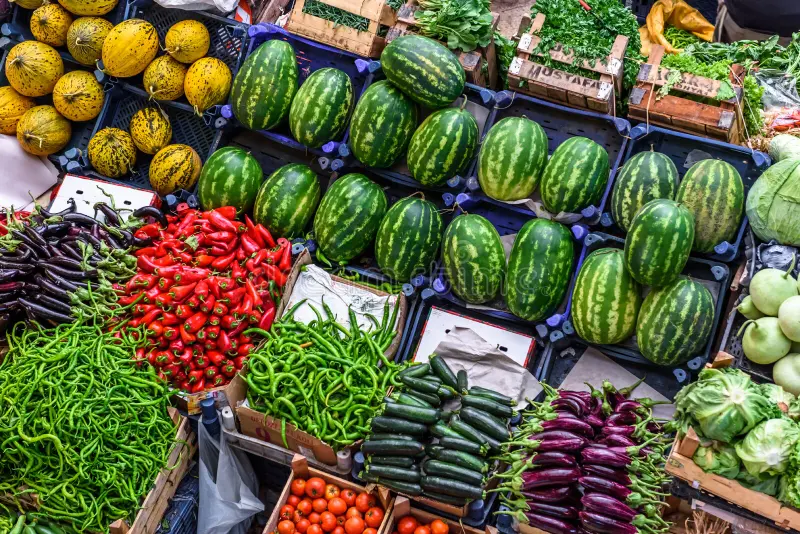
7. Göreme Market – Cappadocia
- Why Visit: Cappadocia’s Göreme Market offers a mix of local produce, handmade crafts, and souvenirs. While the region is famous for its unique landscapes, this market gives visitors the chance to connect with the local culture through its goods.
- What to Buy:
- Local Pottery: Cappadocia is known for its distinctive clay pottery, particularly from the nearby town of Avanos.
- Handmade Textiles: Kilims and woolen scarves are popular souvenirs.
- Dried Fruits: The region’s climate is perfect for producing delicious dried apricots, figs, and grapes.
- Insider Tip: Visit on market day (usually Saturday) for fresh produce and regional food products. You can also explore pottery-making workshops in nearby Avanos.
- Opening Hours: Daily, 9:00 AM to 7:00 PM (Market day is typically Saturday)

8. Bodrum Market – Bodrum
- Why Visit: Known for its coastal charm and laid-back atmosphere, Bodrum’s weekly market is an eclectic mix of clothing, souvenirs, and locally produced food. It’s less chaotic than the markets in Istanbul, making it a more relaxed shopping experience.
- What to Buy:
- Textiles and Clothing: Light cotton, perfect for the Mediterranean climate.
- Local Olive Oil: Bodrum is part of Turkey’s olive-growing region, so you’ll find high-quality, organic olive oil here.
- Sea Sponges: Bodrum is known for its natural sea sponges, harvested from the surrounding Aegean Sea.
- Insider Tip: The food market on Tuesday is a great place to buy local cheeses, olives, and fresh herbs. The Friday market focuses on clothing and souvenirs.
- Opening Hours: Tuesday (Food Market) and Friday (Textile Market), 9:00 AM to 7:00 PM
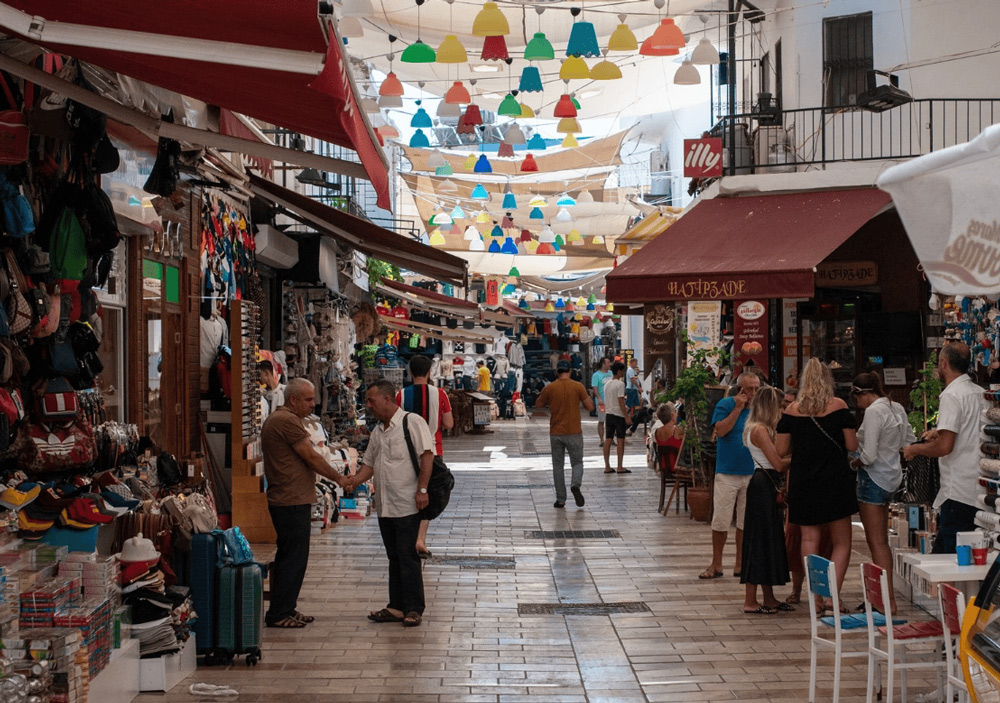
9. Ulus Market – Ankara
- Why Visit: As the capital city of Turkey, Ankara’s Ulus Market provides a more authentic and less touristy shopping experience. It’s a vibrant marketplace where locals buy everyday essentials, from produce to textiles.
- What to Buy:
- Locally Grown Produce: Fruits, vegetables, and fresh herbs from the surrounding Anatolian region.
- Anatolian Wool: High-quality woolen blankets and textiles.
- Handcrafted Copper Goods: Copper trays, coffee sets, and traditional cooking utensils.
- Insider Tip: Bargain with the vendors, as this is a local market with more flexibility on prices than in touristy areas.
- Opening Hours: Monday to Saturday, 9:00 AM to 7:00 PM
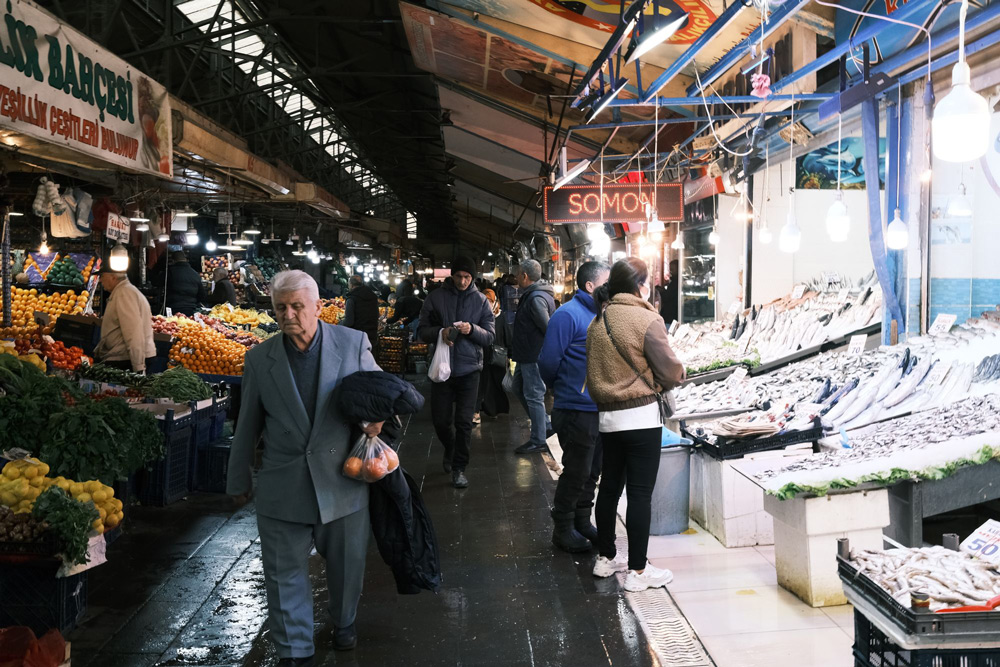
Conclusion
Turkey’s markets offer an immersive experience that goes beyond shopping; they’re a gateway to the country’s culture, history, and culinary delights. From the grand halls of the Kapalıçarşı in Istanbul to the intimate local souks in smaller towns, each market provides a unique experience filled with colorful goods, vibrant conversations, and unforgettable moments.
